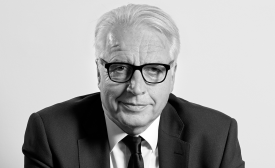brexit
The Welsh Government has committed to establishing an equivalent to Creative England as part of its bid to become the "most creatively active nation in Europe". Welsh economy and infrastructure secretary Ken Skates pledged to set up the body, called Creative Wales, in a new report that sets out a vision for Wales' cultural future.
The English Premier League recently signed its biggest deal outside of the UK. Chinese electronics giant Suning has stumped up £560m for the television rights to broadcast its games to the growing legion of fans there. But it’s not just the size of the agreement that’s eye-catching. It’s a double display of soft power at work: by both China and the UK.
When Donald J Trump is sworn in on 20 January as the 45th President of the United States, the UK needs to make a choice. Trump’s unique and unpredictable blend of belligerence and isolationism means the US can no longer be relied on to defend the liberal, rules based international order in place since the end of the Second World War. This could mark the end of an era for UK foreign policy.
May’s focus was on the need to ensure that the benefits of "liberalism and globalisation" are more evenly distributed. For her, the EU referendum and the US presidential election should be read as wake-up call. Important as this analysis may be for electoral politics, it does not set out a clear road map for the UK’s future foreign policy.
In the next few years, the UK’s constitution will be re-shaped. As a nation, we are yet to recognise the enormity of this. It’s exciting - and terrifying. And this includes the BBC. Why? Not only because it is the single most important media operation in the country, but because it belongs to the peoples of these islands and is part of our informal constitution.
The precise ramifications of the Brexit vote will take a while to shake out, but many people overseas have interpreted it as the UK pulling up the drawbridge and retreating from its international role. This is both unfortunate and troubling. We must show everyone that we are more committed than ever to international cooperation economically, militarily and, above all, through our “soft power.”
These values do not just cover human rights, media freedom, the rule of law, and accountability. They also relate to other specific EU values, especially the free movement of people and access by all member states to the EU single market. These sets of values have made the EU attractive to its members as well as to those countries aspiring to join the bloc.

A frank discussion with Martin Roth, outgoing director of London's V&A Museum, about the future of cultural diplomacy.







